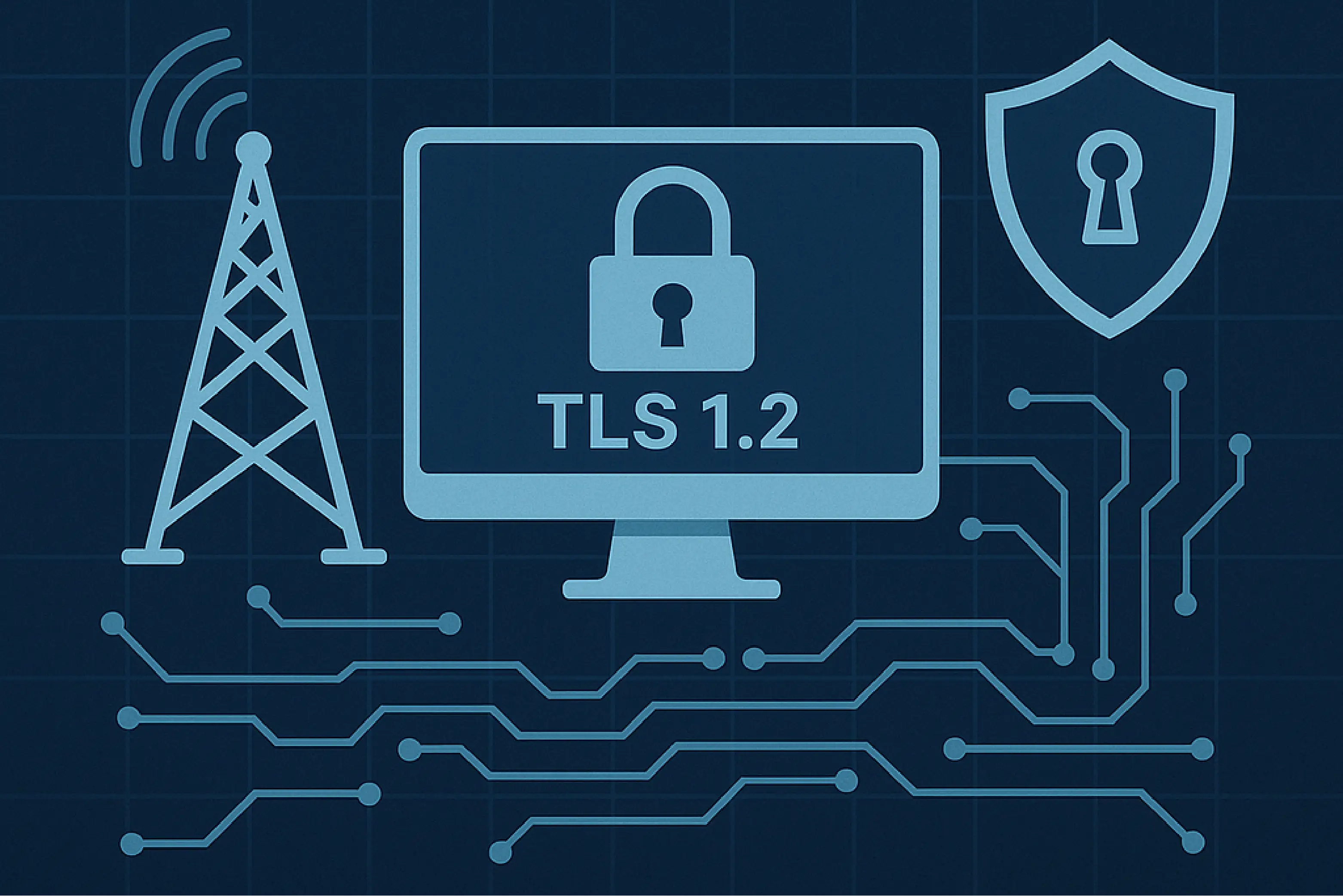Check out our White Paper Series!
A complete library of helpful advice and survival guides for every aspect of system monitoring and control.
1-800-693-0351
Have a specific question? Ask our team of expert engineers and get a specific answer!
Sign up for the next DPS Factory Training!

Whether you're new to our equipment or you've used it for years, DPS factory training is the best way to get more from your monitoring.
Reserve Your Seat TodayThe security of critical infrastructure such as telecommunications, public utilities, and government agencies has become a major concern. With the rise of cyber attacks targeting these systems, it is more important than ever to ensure that sensitive data is protected from unauthorized access.
One crucial step in securing these systems is implementing the latest version of the Transport Layer Security (TLS) protocol - TLS 1.2. DPS Telecom's remote monitoring equipment on our latest G6 platform supports TLS 1.2 encryption to provide the highest level of security for your SCADA system.

TLS 1.2 is a cryptographic protocol used to establish secure connections over a computer network. This version of TLS protocol was released in 2008, and although a TLS 1.3 version has since been released, TLS 1.2 remains the standard for modern network security. It ensures that transmitted data stays private and cannot be accessed by unauthorized parties. TLS 1.2 builds upon its predecessor, SSL (Secure Sockets Layer), and has enhanced security features such as stronger encryption algorithms and improved authentication.
There are several reasons to update your network security infrastructure with TLS 1.2.
Remote monitoring is crucial for the smooth operation of critical infrastructure systems.
It allows organizations to monitor and control their assets remotely, reducing the need for on-site technicians and minimizing downtime in case of an issue.
However, this convenience also comes with potential risks, as remote access can leave systems vulnerable to cyber attacks.
Implementing TLS 1.2 in remote monitoring systems provides a crucial layer of protection against these threats. It encrypts all data transmitted between the monitoring devices and the central management system, making it nearly impossible for hackers to get to sensitive information.
In Simpler Terms:
If you've ever played a game of 'telephone', you know how the message can get twisted as it passes from person to person. Now, imagine if someone tries to read or mess with the message. That's precisely what TLS 1.2 is designed to prevent in the world of computer networks.
When we talk about remote monitoring of critical infrastructure, like your city's water supply or emergency services, we're dealing with very important data that needs to travel safely over the network. TLS 1.2 works as a secret code language that only the sender and receiver understand, keeping the data safe from any 'eavesdroppers'.
How does TLS 1.2 do this? It uses 'encryption', which is like an advanced secret code. It makes sure that the data looks like gibberish to anyone who isn't supposed to see it. Only those with the right 'key' can decode it. Plus, it checks if the data was tampered with during the journey, adding an extra layer of security.
In short, TLS 1.2 is like a secure delivery service for your data. It ensures your important information reaches its destination without any interference. With the DPS Telecom's G6 platform, this secure delivery service is given top priority, keeping your SCADA system (the remote control and monitoring system) safe and secure.
Besides it just being a good idea to secure your network with up-to-date security protocol, many organizations now require that TLS v1.2 is implemented in their networks.
For example, (as of 2019) TLS version 1.2 is the minimum standard for government servers in The National Institute of Standards and Technology (NIST) guidelines.
According to NIST Special Publication 800-52, Revision 2: Guidelines for the Selection, Configuration, and Use of Transport Layer Security (TLS) Implementations:
"...Federal Information Processing Standards (FIPS) and NIST-recommended cryptographic algorithms...require that TLS 1.2 configured with FIPS-based cipher suites be supported by all government TLS servers and clients..."
At DPS Telecom, we understand the importance of protecting your infrastructure. That's why our G6 platform supports TLS 1.2 encryption to provide the highest level of security for your SCADA system.
With the G6, you can easily upgrade your existing monitoring devices to support TLS 1.2, ensuring that all data transmissions are encrypted and secure. Our platform also offers advanced security features such as multi-factor authentication and role-based access control, giving you complete control over who can access your critical infrastructure systems.
Most devices on DPS Telecom's G6 Platform support TLS 1.2. Whether you are looking to implement a new SCADA system with TLS 1.2 support for your critical infrastructure, or you're considering upgrading an existing remote monitoring solution, there is a DPS system for your network.
These are just a few of the products we offer that support TLS v1.2:
TLS v1.2 is a crucial tool in protecting your SCADA system from cyber threats. With its enhanced security features, it ensures that your sensitive data remains private and secure during remote monitoring operations. By incorporating TLS 1.2 into our G6 platform, DPS Telecom provides you with comprehensive protection for your critical infrastructure systems. Get in touch with us to get your network monitoring system up-to-date.

Haley Zeigler
Haley is a Technical Marketing Writer at DPS Telecom. She works closely alongside the Sales and Marketing teams, as well as DPS engineers, resulting in a broad understanding of DPS products, clients, and the network monitoring industry.